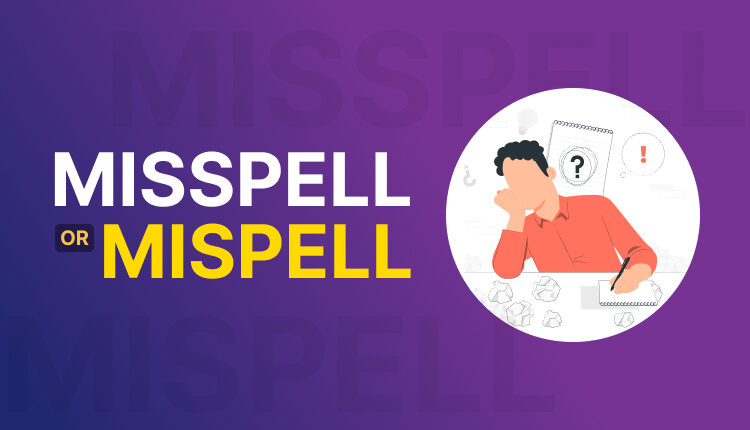You know how language can be a bit finicky at times, and one of the big offenders for difficult spellings is indeed one of the most confused words: that little beastie labeled “misspell.”
Do you know if it’s two ‘s’ or one? Indeed, it’s a question that has puzzled many apparently simple-minded folks for an awful long time. Whichever it is – writing an email, composing a school paper, or just texting a friend – knowing how to spell this word correctly will make all the difference. Let’s unwrap the mystery of “misspell” vs. “mispell” and ensure you never make that mistake again!
Misspelling Definition
Misspelling refers to the act of writing a word incorrectly. It is generally when letters of a word are presented in the wrong order, or entirely wrong letters are typed. It may be due to typo, not familiar with how the spellings should be, or even writes in a haste.
Misspelling is a common mistake at times in daily writing and communications. An email, a text message, or social media post tends not to lose its place due to misspelled words that then find common usage without much notice as people write quickly on their devices because of the nature of the digital age.
A correct knowledge of spellings can help one to convey the message appropriately. A minimal error made in spelling can bring forth a complete difference in the meaning and clarity of a text. As such, the correct spellings are an extremely important tool when it comes to getting any kind of idea or message across.
Misspell Examples
As far as misspellings go, some mistakes are recognized more than others. For instance, numerous people frequently misspell “definately” instead of “definitely.” Some such easy exchange might take place and, as a result, cause confusion in your writing.
Another commonly misspelled word is “accomodate,” which is actually spelled “accommodate.” That extra “m” and “c” really sneak up on many of us. It’s a subtle mistake, but an important one for clarity in communication.
The common spelling error with this word is “occured.” Don’t be fooled-you really spell it “occurred.” Trying to keep those extra letters straight in your head can be difficult. These words are good examples of how easily a word can become mispelled.
Misspelled or misspelt?
The two words, “misspelled” and “misspelt,” cause many speakers of English a great deal of confusion. The first, “misspelled,” is the American favorite. It follows the standard model in adding “-ed” for the past tense of verbs.
Misspelt” is much more common in British English. It’s another instance where the past tenses of some verbs have to be achieved differently. Both forms are acceptable; what one uses may depend on one’s audience or regional orientation.
When writing for an international readership, as in this case, try to use one form uniformly. This acquaintance with these small variations can prove to be instrumental to make clarity and ensure that you get your point across to your multilingual reader.
Why are there two “s’s” in “misspelled?
The two “s’s” in the word “misspelled” trace back to its etymology. A combining form made with “mis-” meaning incorrectly with a root verb “spell,” usually double consonants result when the original word ends in a single vowel followed by that consonant in addition of such a prefix.
The rules of spelling the English language often demand doubling for purposes of pronouncing and clarity. Doubling an additional “s” helps ensure that readers receive the correct pronunciation of the word.
This was not only the case with “misspelled”. That other words, such as “addressed,” “compelled,” among others follow the same rules, is an excellent example of the complexity of English spelling conventions that learners both struggle and get excited about.
Conclusion:
Now, let’s learn the mechanisms behind the Trinka grammar checker. These types of software use complex algorithms designed to scan through text. It can check for not just common spelling errors but contextual ones and stylistic issues as well. It scours through sentence structures and recommends change according to clarity and conciseness. With real-time feedback at your fingertips, you are equipped to enhance your writing effortlessly!

